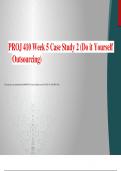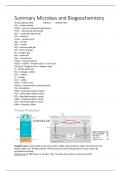Jodel Ofori-Boafo 23270
26/03/2021 – Completion Date
Unit 6: Investigative Project ~ Aim A
A.D1: Assess the various strategies for examination considered for the insightful task proposition,
defending the theory picked.
Aim.M1: Assess a literature search and address its importance to the proposed investigation initiative.
Aim.M2: Create a research plan for a scientific investigation, including a theory and any possible limitations.
Aim.P1: Conduct a literature search and analysis of a particular science field.
Aim.P2: Create an adequate project proposal for an investigation project, as well as a theory.
Assignment Title – How LED lights affect the rate of plant growth.
Introduction:
The project that I have chosen looks at photosynthesis. Both living things depend on the mechanism of
photosynthesis. Plants must photosynthesise so they can obtain oxygen and expel carbon dioxide from the
atmosphere, which they do by absorbing carbon dioxide. More carbon dioxide is being produced by the
extraction of fossil fuels as we face an ordeal with climate change. “Global net human-caused carbon
dioxide emissions will need to decline by about 45 percent from 2010 levels by 2030, hitting ‘net zero'
around 2050” according to the United Nations. (United Nations, 2019)” This suggests that any remaining
emissions will have to be offset by CO2 removal from the atmosphere. Plants consume carbon dioxide;
helping the atmosphere, the aim of some light growing plants even faster would help increase climate
change, allowing a healthier, sustained future. This is due to the fact that increasing plant growth would
help to mitigate climate change by lowering carbon dioxide emissions.
Plants also provide us with fruits and a habitat for wildlife. Our worldwide food chain structure would break
down and endanger the loop if plants were not present. Furthermore, this policy would increase cultivation,
allowing farmers to profit from plant growth. This will encourage them to increase the yield of their crops,
resulting in more benefit. This investigation will give a larger insight on greenhouses to enhance their
knowledge of how different light colours are useful in various ways, leading to changes in their greenhouse.
This research project would help less economically developing countries stabilise and preserve their
climate. It was stated in an article that plants that sit under LED lights with the colour blue produced much
more fruits than those without. “However, LEDs have an initial price that is expensive and if they are
overheated during winter as they depend on the environments temperature it will lead to the device failing
leading to repurchase and more costs” (Leds Magazine, 2005) Yet others say that light has an impact on
plants and helps them to rise. As a result, those involved in plant growth will profit from this.
Sunlight is commonly known to encourage plant growth, yet plants that were grown with white, red, and
blue LED lights have been shown to have improved growth, feeding, production, presentation, and
nutritious condition. Plants that were grown with green light did not have all the benefits that came with the
other lights, proving that green LED lights are the least effective for plant growth. This key information is
going to be useful when participating in the proposed investigation.
My aims and objectives for this project:
For this project I have two different aims, and objectives that need to be fulfilled to have a successful
project:
First Aim: Investigating the affect that different light colours have on plant development (the plant with the
most growth will reveal the colour that had the most impact and would show the light with the most powerful
energy and wavelength).
Second Aim: Determining the number of leaves that have grown on each plant under various lighting
conditions (the greater number of leaves produced will represent the more powerful light and the great
affect it has on the plant).
First Objective: Notice plant development over an adequate time span; notice the development of one
plant under blue, green, red, white, and no light, and have the option to decide plant development rates
from perceptions.
26/03/2021 – Completion Date
Unit 6: Investigative Project ~ Aim A
A.D1: Assess the various strategies for examination considered for the insightful task proposition,
defending the theory picked.
Aim.M1: Assess a literature search and address its importance to the proposed investigation initiative.
Aim.M2: Create a research plan for a scientific investigation, including a theory and any possible limitations.
Aim.P1: Conduct a literature search and analysis of a particular science field.
Aim.P2: Create an adequate project proposal for an investigation project, as well as a theory.
Assignment Title – How LED lights affect the rate of plant growth.
Introduction:
The project that I have chosen looks at photosynthesis. Both living things depend on the mechanism of
photosynthesis. Plants must photosynthesise so they can obtain oxygen and expel carbon dioxide from the
atmosphere, which they do by absorbing carbon dioxide. More carbon dioxide is being produced by the
extraction of fossil fuels as we face an ordeal with climate change. “Global net human-caused carbon
dioxide emissions will need to decline by about 45 percent from 2010 levels by 2030, hitting ‘net zero'
around 2050” according to the United Nations. (United Nations, 2019)” This suggests that any remaining
emissions will have to be offset by CO2 removal from the atmosphere. Plants consume carbon dioxide;
helping the atmosphere, the aim of some light growing plants even faster would help increase climate
change, allowing a healthier, sustained future. This is due to the fact that increasing plant growth would
help to mitigate climate change by lowering carbon dioxide emissions.
Plants also provide us with fruits and a habitat for wildlife. Our worldwide food chain structure would break
down and endanger the loop if plants were not present. Furthermore, this policy would increase cultivation,
allowing farmers to profit from plant growth. This will encourage them to increase the yield of their crops,
resulting in more benefit. This investigation will give a larger insight on greenhouses to enhance their
knowledge of how different light colours are useful in various ways, leading to changes in their greenhouse.
This research project would help less economically developing countries stabilise and preserve their
climate. It was stated in an article that plants that sit under LED lights with the colour blue produced much
more fruits than those without. “However, LEDs have an initial price that is expensive and if they are
overheated during winter as they depend on the environments temperature it will lead to the device failing
leading to repurchase and more costs” (Leds Magazine, 2005) Yet others say that light has an impact on
plants and helps them to rise. As a result, those involved in plant growth will profit from this.
Sunlight is commonly known to encourage plant growth, yet plants that were grown with white, red, and
blue LED lights have been shown to have improved growth, feeding, production, presentation, and
nutritious condition. Plants that were grown with green light did not have all the benefits that came with the
other lights, proving that green LED lights are the least effective for plant growth. This key information is
going to be useful when participating in the proposed investigation.
My aims and objectives for this project:
For this project I have two different aims, and objectives that need to be fulfilled to have a successful
project:
First Aim: Investigating the affect that different light colours have on plant development (the plant with the
most growth will reveal the colour that had the most impact and would show the light with the most powerful
energy and wavelength).
Second Aim: Determining the number of leaves that have grown on each plant under various lighting
conditions (the greater number of leaves produced will represent the more powerful light and the great
affect it has on the plant).
First Objective: Notice plant development over an adequate time span; notice the development of one
plant under blue, green, red, white, and no light, and have the option to decide plant development rates
from perceptions.










